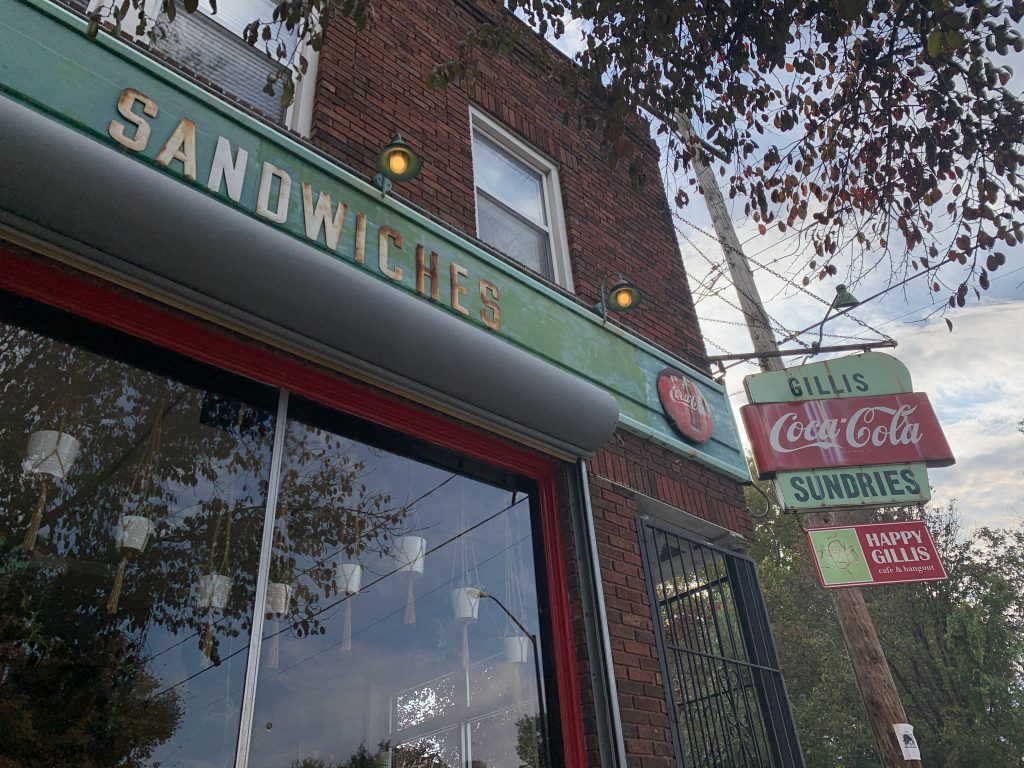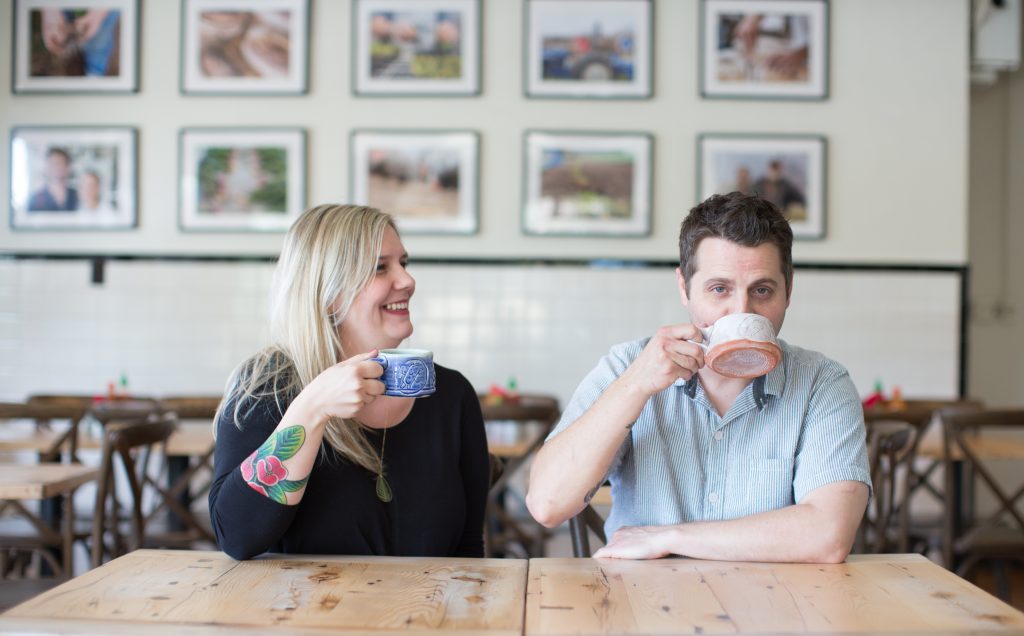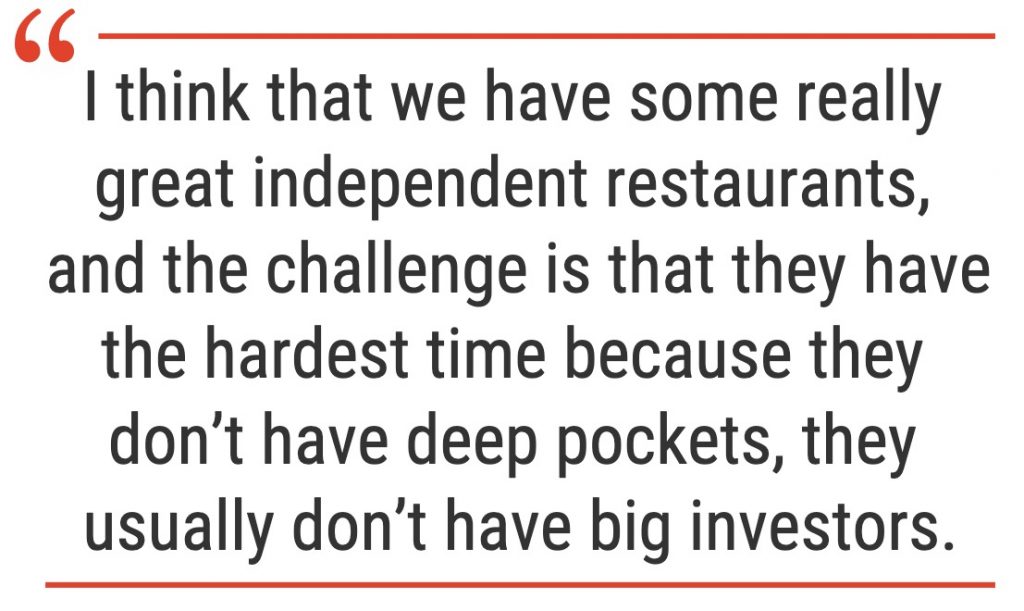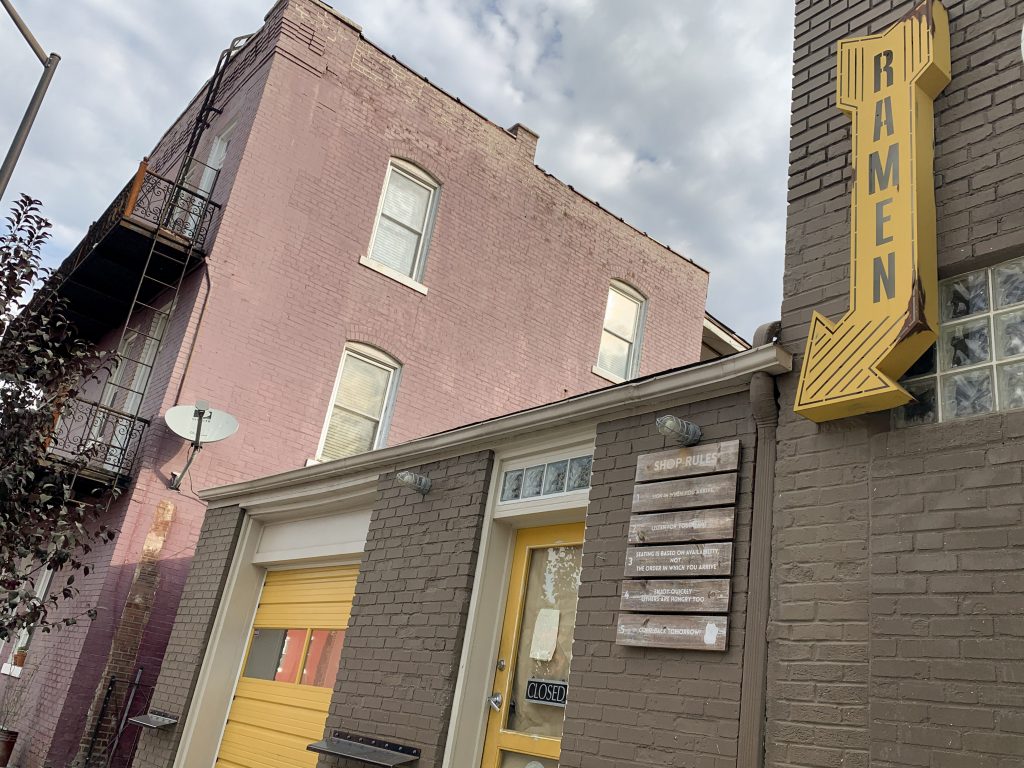
The restaurant industry has been hit especially hard throughout 2020, as many restaurants cannot re-open due to COVID-19 precautions, and many patrons do not go to those that are open in an effort to reduce risk in the community. Since the first lockdown in March, the food service industry has lost $165 billion in revenue and is likely to end the year having lost $240 billion. Additionally, customer spending in restaurants has been down 34 percent so far this year.
Kansas City has experienced the effects of these losses as countless, especially local, restaurants continue to shut down because of the insurmountable disruptions COVID-19 imposed on the industry. This article is the first in a series exploring the effect of COVID-19 losses on individual restaurants in Kansas City.
Happy Gillis Cafe & Hangout
Happy Gillis Cafe & Hangout – owned by chefs Abbey-Jo and Josh Eans since 2013 – has been a staple in the Columbus Park neighborhood. The breakfast and brunch spot serves sandwiches, breakfast classics and seasonal offerings on their rotating menu.

The couple, who also lives in Columbus Park, opened Columbus Park Ramen Shop two years later in their 350 square-foot garage. Both restaurants are beloved by Kansas Citians for their commitment to supporting local producers and, above all, really good food. However, like most restaurants, COVID-19 forced the Eans’s to temporarily shutter their small neighborhood restaurants until it was safe enough to re-open.
Happy Gillis has since re-opened for weekend brunch and their new meal kit service. The Hilltop Monitor was able to talk with Abbey-Jo Eans about how their restaurant is doing during this time and the state of Kansas City restaurants in general.
Eans began by discussing the perilous situation the restaurant industry is in right now.

“I think [the current state of the restaurant industry] is pretty scary. I think that we have some really great independent restaurants, and the challenge is that they have the hardest time because they don’t have deep pockets, they usually don’t have big investors,” Eans said. “I’ve been telling people lately that I feel simultaneously super grateful and I can’t believe that we were closed and now we’ve reopened and people are coming back. Like, not many places can do that and not many places can make it through what we’re making it through. But at the same time I feel really freaked out because: oh my gosh, are there enough people coming and how will I make it through the winter and what will happen… It’s kind of just a lesson in this crazy speed of running after something super hard and also holding things kind of loosely so you can be appreciative as the positive things come in so that you can keep going and you can tackle the next challenge.”
The COVID-19 safety measures put out by the city have not really affected how the Eans run their business. According to Eans, it’s actually a matter of being clear about their commitment to safety.
“We’re kind of doing a lot of the same things that we would do anyway. Like restaurants that are successful, they do make sure that their spaces are clean and sanitized… It’s kind of just taken to the next level… We serve on paper now and I’m hoping that that will change in the future and we can go back to using dishes and stuff,” said Abbey-Jo Eans.
A lot of changes had to be made to Happy Gillis for the Eans’s to continue their business and still be successful. One such change was the creation of their meal kit delivery and pick-up service. Customers can order meals that feed 2-4 people, sides and kitchen staples like eggs and vegetables through Happy Gillis. The food is delivered on Fridays or can be picked up during brunch hours on Saturday and Sunday. Still, changes that have been made in response to COVID-19 have been reactionary, calling their permanence into question.
“We still don’t really know what [changes] are going to be permanent. I think for us, we kind of switched really quickly. For Happy Gillis specifically, we shut our dining room down like two weeks after everything happened. It was maybe in mid-March we had to let our whole staff go and then by the end of March we had our dining room closed and we’ve been working on these meal kits… So we switched. The permanent changes for us are that we have this new kind of like baby business model that we created and I think that’s something that will stick forever. I think that people have learned through the inconvenience of COVID-19, we’ve kind of learned how to get things more conveniently – like having to have everything delivered,” Abbey-Jo Eans said.
Although Happy Gillis is now open for weekend brunch and the meal-kit service, the Eans’s other restaurant, Columbus Park Ramen, remains closed for the time being.

“[Columbus Park Ramen] is kind of – I don’t want to say difficult – but it is a difficult situation. The ramen shop is in a garage so there’s no social distancing space available. It would be almost impossible to use that space, so I think that’s been a huge challenge for us and I think that right now what we’re doing is we’ve just put it on hold. We don’t have an opening date yet because it’s just not feasible… If it was my only business it would be even harder. People that have had to close their doors for the one business that they do [have],” Abbey-Jo Eans said. “It’s not that it’s less hard… I’m not saying at all that we can afford to let it go. But I think because we have Happy Gillis there’s something to kind of help keep us going. We had to decide how to best focus our energy because this time is just financially draining, it’s emotionally draining and we needed to focus somewhere. For us Happy Gillis is where we really started down here and so we just felt like that was where we could feasibly work with.”
It is challenges like these that have been plaguing restaurant owners since the start of the pandemic. Figuring out how to stay open and feed people in a safe way is an ever-changing and not easily accomplished task. Happy Gillis – a small corner restaurant that used to have 14 tables – is down to five tables inside the restaurant and additional tables outside on their sidewalk.
Sidewalk and patio seating, like Happy Gillis has done, has been a sort of salvation for restaurants this summer. Since restaurants had to eliminate much, if not all, of their indoor dining space to comply with COVID-19 health regulations, patio seating offers a place that customers can sit safely outside with proper air circulation and distance. However, winter brings a new set of challenges as the cold weather will likely put an end to outdoor seating. This means Kansas Citians will need to dedicate themselves to preserving the restaurants they love.
“I don’t know what’s going to happen in the winter. I don’t know if Kansas Citians are going to be ready to push through and still eat outside when it’s cold… Sometimes we’re not able to be open, you know, like some other restaurants that can just be open all the time. Sometimes we’re just not able to do that and we’re doing our best,” Abbey-Jo Eans said. “The situation is kind of requiring everyone to go a little bit beyond what’s maybe the most comfortable and the most convenient… It’s also hard because we want people to come but we’re also not in a financial place where we can go out to eat all the time and support places. So it’s a weird fine balance of, like I said before, of being super appreciative that people are coming and spending their money here but also trying to help people understand that by doing that, we need them to do it more, we need them to do it more consistently and just more in order to survive.”
Over the course of the pandemic, the constantly precarious situation that restaurant staff and owners live in has become clear. Wages depend on tips, and a restaurant’s profit depends on being at or over capacity. With tips lessening or disappearing during the lockdown and subsequent decrease of dining, and restaurants only being able to seat about half of their normal clientele, people are losing their income, and restaurants are closing. That is why wages are one of the things Abbey-Jo Eans hopes changes after the pandemic.
“I really hope that our labor force and what we pay people and the kinds of working environments that people have and the restaurant culture itself, I hope that that’s changed for the better… People need to understand that the people cooking their food make minimum wage sometimes… like we have to get to this place where that’s not acceptable anymore. We can push it all day, but if people don’t support it it’s never going to work,” said Eans. “I mean, if the wage goes up, which is awesome, then we have to charge more. And if people really understand what the cost of food is – which hopefully they are learning that as they are having to go to the grocery store themselves now and buy and cook at home more – hopefully all those things will kind of spur change for the better.”

Above all, the lockdown and its effects have hopefully shown Kansas Citians the importance of constantly supporting the places that they love. If people want restaurants to stay open, to keep serving their delicious and creative food, and to maintain Kansas City’s status as a hidden gem for foodies, they have to support local.
Restaurants provide us with good food and comfort, especially during times like these. When we buy and eat local we are supporting other Kansas Citians, like Abbey-Jo and Josh, in keeping their dreams alive – as well as ensuring we have spaces to continue to frequent. Local restaurants have been there to give us comfort during everything from nights out to business meetings to stay at home orders – now it’s our turn to support them.
To support Kansas City restaurants and food service workers, visit KC Runs on Hospitality
